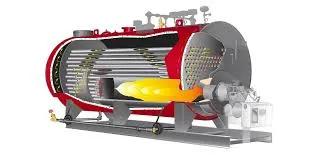
Nov . 06, 2024 19:24 Back to list
Exploring Different Types of Hot Water Boilers for Efficient Heating Solutions
Understanding Hot Water Boiler Types A Comprehensive Guide
Hot water boilers are essential components in heating systems, providing hot water for residential and commercial applications. Understanding the various types of hot water boilers is crucial for homeowners and businesses alike, as it influences energy efficiency, operational costs, and heating effectiveness. In this guide, we will explore the main types of hot water boilers, their features, advantages, and considerations for choosing the right system.
1. Conventional Boilers
Conventional boilers, often referred to as traditional or regular boilers, utilize a hot water tank to store heated water. These systems typically operate on natural gas, propane, or oil. They consist of three primary components the boiler, the hot water tank, and the central heating system.
Advantages - Capacity They can supply a large amount of hot water, making them suitable for larger households or commercial establishments. - Affordability Conventional boilers are generally less expensive to purchase and install compared to other types.
Considerations - Space Requirements These boilers require adequate space for the tank and pipes. - Energy Efficiency They may be less energy-efficient than other modern systems, leading to higher utility bills over time.
2. Combi Boilers
Combination (combi) boilers are becoming increasingly popular due to their space-saving design and efficiency. They provide both heating and hot water on demand without the need for an additional storage tank.
Advantages - Space-Saving Ideal for smaller homes or apartments where space is limited. - Efficiency Combi boilers heat water directly from the mains supply, reducing energy waste and providing hot water only as needed.
Considerations - Hot Water Demand While ideal for smaller households, they may struggle to provide adequate hot water for larger families or simultaneous usage in multiple bathrooms.
System boilers are similar to conventional boilers but come with an inbuilt hot water cylinder. They are designed to meet the demands of larger houses and can efficiently supply hot water to multiple outlets at once.
hot water boiler types

Advantages - Consistency Offers a reliable supply of hot water to multiple bathrooms simultaneously. - Integrated Components The system's components are built-in, which can reduce installation complexity and improve aesthetics.
Considerations - Space Requirements They still require space for the hot water cylinder, making them less suited for small properties.
4. Electric Boilers
Electric boilers are compact and environmentally friendly, making them a viable option for those looking for a more sustainable heating solution. They utilize electricity to heat water for both central heating and domestic hot water.
Advantages - Eco-Friendly Reduced carbon footprint compared to fossil fuel alternatives. - Quiet Operation They operate very quietly, enhancing comfort in residential settings.
Considerations - Electricity Costs Depending on local electricity rates, operating costs may be higher compared to gas or oil boilers. - Capacity Constraints They may have limitations in terms of hot water output, making them less suitable for larger households.
5. High-Efficiency Boilers
High-efficiency boilers, often referred to as condensing boilers, use advanced technology to recover and utilize waste heat from exhaust gases. This makes them one of the most energy-efficient options available.
Advantages - Energy Savings They can significantly reduce energy bills by maximizing heat recovery. - Environmental Impact Lower emissions contribute to a more sustainable heating solution.
Considerations - Initial Costs They typically have higher upfront costs, but the long-term savings often offset the initial investment.
Conclusion
Selecting the right hot water boiler type depends on various factors, including the size of the property, hot water demand, space availability, and budget. Each boiler type has its own strengths and weaknesses, making it essential to conduct thorough research and potentially consult with a heating professional. By understanding the differences between conventional, combi, system, electric, and high-efficiency boilers, consumers can make informed decisions that best suit their heating needs, promote energy efficiency, and enhance overall comfort in their homes.
-
High-Efficiency Commercial Oil Fired Steam Boiler for Industry
NewsJul.30,2025
-
High-Efficiency Biomass Fired Thermal Oil Boiler Solutions
NewsJul.30,2025
-
High Efficiency Gas Fired Thermal Oil Boiler for Industrial Heating
NewsJul.29,2025
-
High-Efficiency Gas Fired Hot Water Boiler for Sale – Reliable & Affordable
NewsJul.29,2025
-
High Efficiency Biomass Fired Hot Water Boiler for Industrial and Commercial Use
NewsJul.29,2025
-
High-Efficiency Biomass Fired Hot Water Boiler for Industrial Use
NewsJul.28,2025
Related PRODUCTS






















